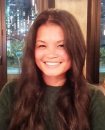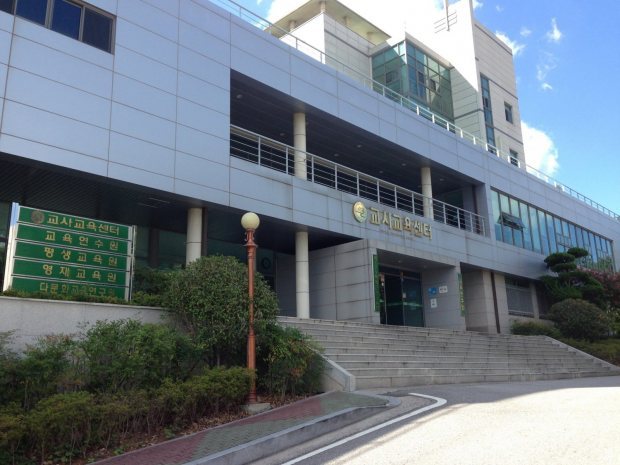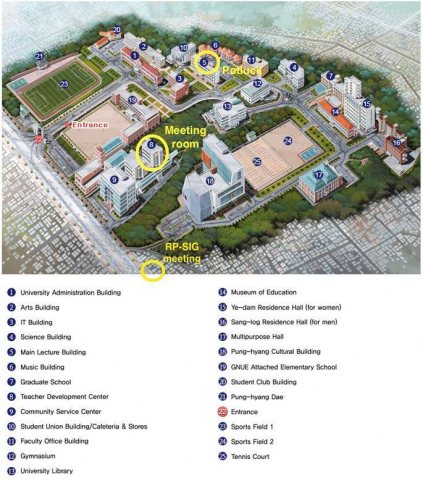
Gwangju-Jeonnam Chapter August Meeting
.
ㅡ Morning Reflective Practice Session ㅡ
No session scheduled: Summer Reflection Recess.
ㅡㅡ MAIN MEETING SCHEDULE ㅡㅡ
Time: 2nd Saturday, August 10, 2019, 1:45ㅡ5:00 pm
Location: Gwangju National University of Education (GNUE), Teacher Training Center (교사교육센터) 1st Floor; Room 812. Detailed directions HERE.
1:45 pm: Sign-in and Meet-and-Greet (Admission: Free for newcomers. Membership welcomed.)
2:00ㅡ2:50 pm: Presentation 1
ㅡ Topic: To See Every Piece of the Mosaic: A Discussion on Diversity in the Classroom
ㅡ Presenter: Diane Santos
2:50ㅡ3:10 pm: Refreshment Break
3:10ㅡ4:00 pm: Presentation 2
ㅡ Topic: Gaming Session ㅡ How-to: Tabletop Roleplaying Games
ㅡ Presenter: Paul Johnson (Changshin University)
4:10ㅡ4:45 pm: SwapShop Mini-Presentations
Share your Teaching Ideas, Classroom Activities, and Teaching Wisdom with the group.
(Everyone is encouraged to share [up to 5ㅡ6 min. each]. Short tidbits are welcomed. Handouts also welcomed.)
4:45 - 5:00 pm: Announcements / Drawing for Door Prizes / Closing
Session Summaries
To See Every Piece of the Mosaic:
A Discussion on Diversity in the Classroom
Diane Santos
 With rates of international marriages in South Korea trending upward, we are seeing an increase in the student population of mixed heritage children. How has South Korea’s traditionally homogeneous society been responding to such changes in its cultural fabric? As stakeholders in education we have the perfect opportunity to model inclusivity and to shape a positive dialogue about diversity. This collaborative workshop will provide a space for brainstorming answers to the following questions:
With rates of international marriages in South Korea trending upward, we are seeing an increase in the student population of mixed heritage children. How has South Korea’s traditionally homogeneous society been responding to such changes in its cultural fabric? As stakeholders in education we have the perfect opportunity to model inclusivity and to shape a positive dialogue about diversity. This collaborative workshop will provide a space for brainstorming answers to the following questions:
ㅡ How can we create a classroom that accommodates cultural and linguistic pluralism?
ㅡ What are the ways in which we can bring positive visibility to students of mixed heritage?
ㅡ What are the ways in which we can practice cultural sensitivity when addressing traditional ideas of purity?
The Presenter

Diane Santos holds an undergraduate degree in international studies from the University of Oregon. She has recently finished a teaching licensing course for the District of Columbia, USA, with a concentration in secondary ESL education. Her adventures in ESL teaching started in 2007 at a small hogwan in Taebaek, Gangwon-do. Since then she has taught in both public and private institutions in four provinces across Korea. Over several cups of tea with friends, she has mused over the incredible changes she’s witnessed in the country’s landscape over the past decade.
____________________
Gaming Session How-to:
Tabletop Roleplaying Games
By Paul Johnson
 This workshop is about using tabletop roleplaying games for second language acquisition. It will offer teachers a guide for assisting their students in developing characters to use in tabletop roleplaying games. Along the way, the workshop seeks to point out the many benefits to second language acquisition associated with this process.
This workshop is about using tabletop roleplaying games for second language acquisition. It will offer teachers a guide for assisting their students in developing characters to use in tabletop roleplaying games. Along the way, the workshop seeks to point out the many benefits to second language acquisition associated with this process.
This workshop offers a two-fold critique of standard ESL roleplaying activities: (a) Standard roleplaying activities lack character investment. The students will care much more about the success or failure of their characters if they have created them themselves. (b) Standard roleplaying activities take character development for granted, thereby missing out on language acquisition opportunities for students.
In a standard roleplaying activity, characters are typically generated in one of two ways: (1) They come pre-generated as part of an activities sheet or (2) the instructor laboriously spends time individually creating them. The process that this workshop suggests avoids these pitfalls and instead focuses on enabling students to create characters themselves.
Once characters have been created, everyone will get to play out a tabletop roleplaying scenario, to experience first-hand the many benefits of using these sorts of games in language classrooms.
The Presenter

Paul Johnson was born and raised in Southern California. He has an MA in philosophy and focuses on ethics. He loves running, reading, and making music. Paul wants to use games to help make the world a better place. He teaches at Changshin University in Changwon, Gyeongnam. Email: ajwoodsum@gmail.com
Photo: The Gwangju National University of Education (GNUE / 광주교육대학교), Teacher Training Center (교사교육센터), venue for our main meeting ㅡ 1st floor, Room 812.






